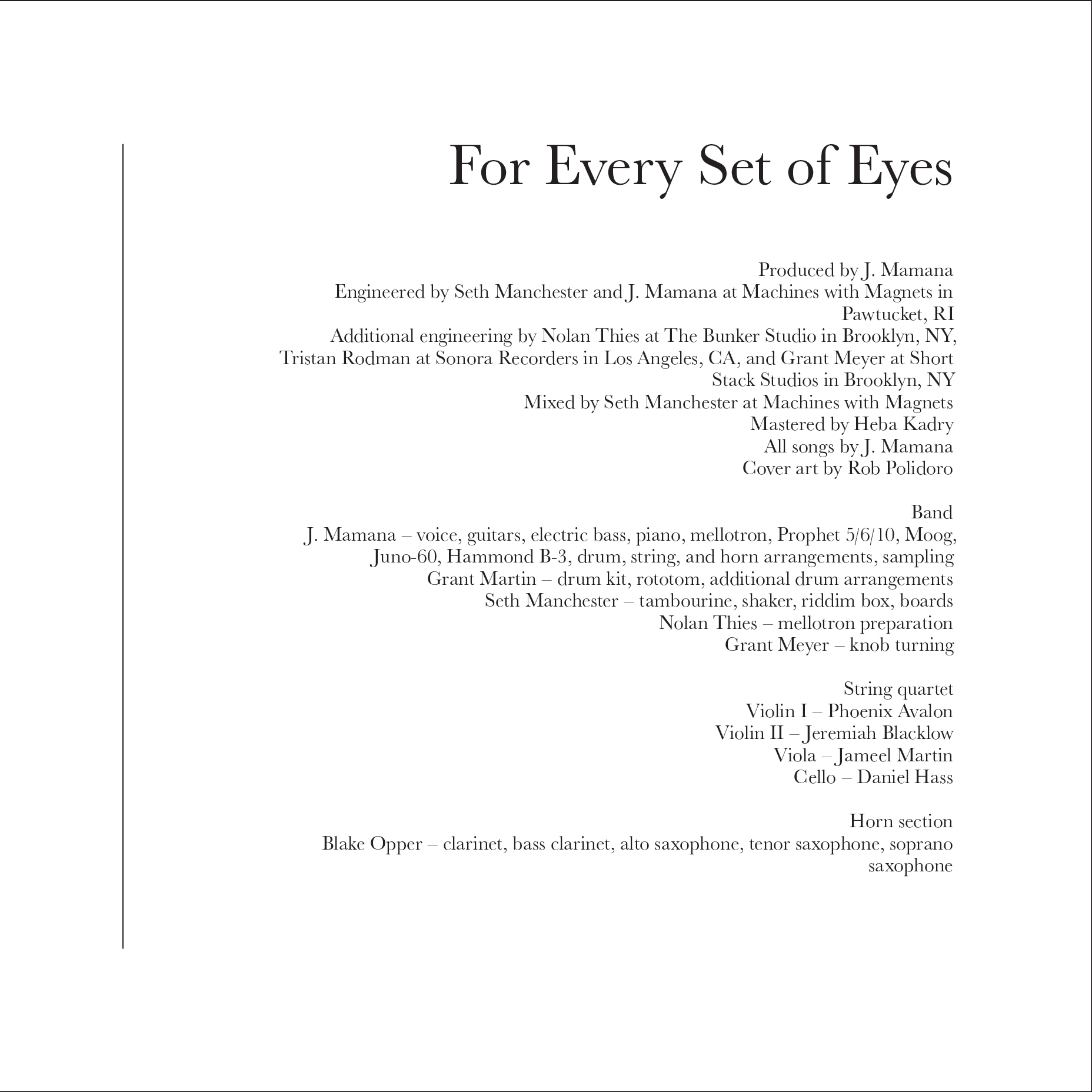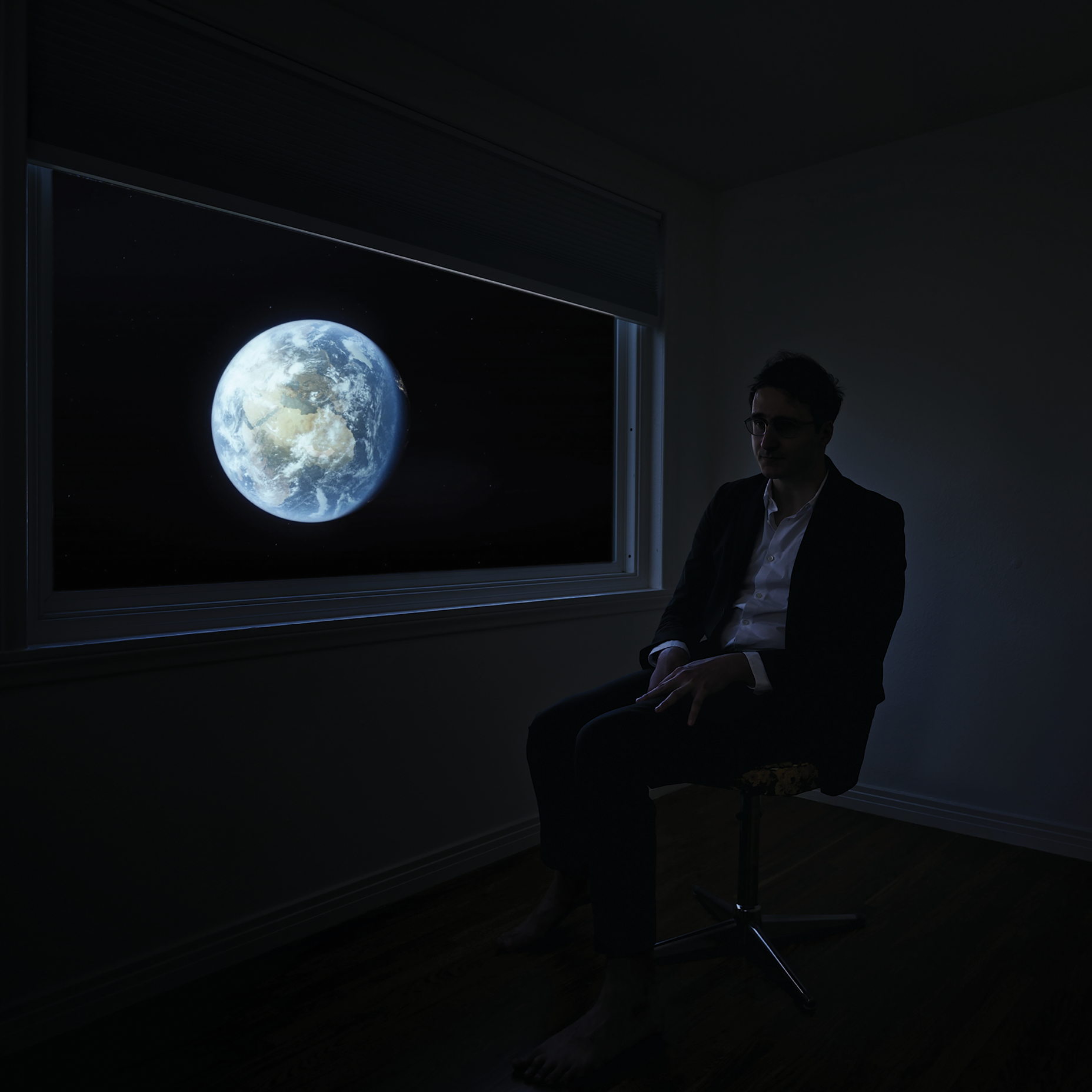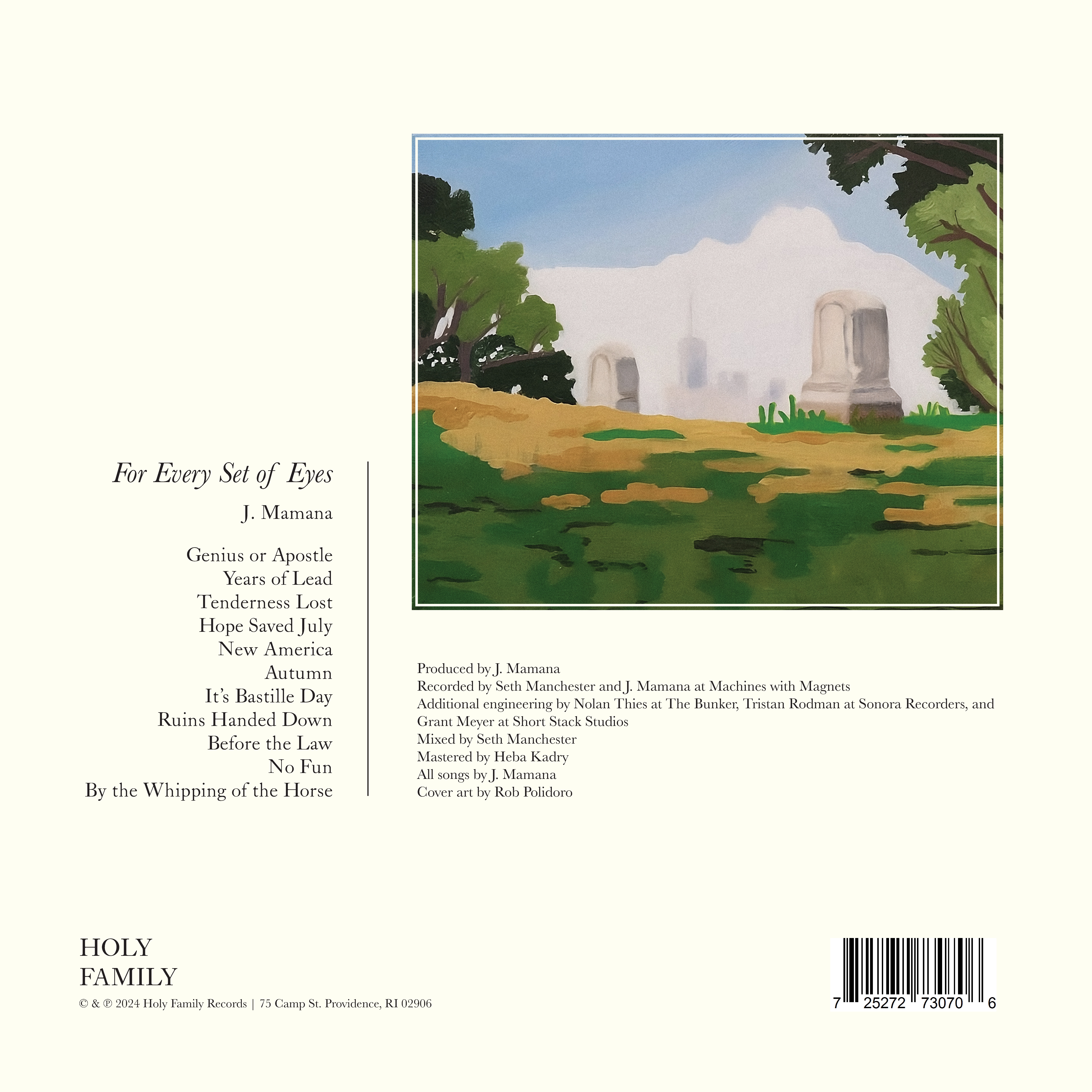








For Every Set of Eyes, J. Mamana’s second full-length album, emerges luminously out a four-year period of turmoil and disillusionment for the songwriter, bearing the hallmarks that made his debut of critical and cult interest.
Recorded with Seth Manchester (Lingua Ignota, Model/Actriz, Mdou Moctar) and mastered by Heba Kadry (Björk, Big Thief, Cass McCombs), Mamana ornaments his songs with orchestrations characterized by contrapuntal strings, mournful horns, bilious vocal harmonies, ecclesiastical synths, and plunked piano and classical guitar. The arrangements are a testament to Mamana’s attention to detail — it literally opens with a fugue for string quartet — evincing his “talent, vision, ambition, [and] precocity,” to quote Jayson Greene’s Pitchfork review of his debut, but now with a refinement that comes with practice, effort, and time.
If Nothing New in the West concerns itself with the sweep of history, then For Every Set of Eyes peers inward at the singer. The stories Mamana tells on this record reflect his experiences over the past several years: mainly, the sudden death of his best friend to overdose at age 26 and the subsequent end of a four-year relationship.
In these songs, one feels the strangeness of tragedy and the confusion of loss, the hurt and beauty of remembrance, the lightness of revelation. The ghosts of his friends and the evils that haunted them are present, and the various characters Mamana depicts are hopeful and sorrowful in equal measure — some demagogic and brutal, others weedy and lost.
Watch the video for “Hope Saved July.”
All throughout, Mamana’s lush, manic, occasionally dive-bombing arrangements nestle against his vocals, which are as intense as they are tender. The string quartet is the centerpiece here. No mere ornamentation, the strings are his Greek chorus, commenting from on high, full of pity and, occasionally, disagreement. Meanwhile, drummer Grant Martin (Marissa Nadler, Belaver) holds down the rhythm section, adding a dynamism and accessibility that should earn the songwriter his share of new admirers.
It is not for nothing that Mamana named this record after a lyric from Neil Young’s On the Beach (“I never knew a man/could tell so many lies/He had a different story/for every set of eyes”). If Highway 61 Revisited was the tentpole reference for his first LP, then Young’s “Ditch Trilogy,” with its gloom, air of hopelessness, and dirt-black humor, is the spiritual forbearer to his second.
“I nearly gave up on music, seeing no hope in it,” Mamana writes. “But I couldn’t do anything else. I saw that it was my only hope. In the end, it’s kind of the same to be hopeless and to have only one hope. That sense of commitment, the strange freedom of giving everything to something that can’t save you.”
Watch the video for “Tenderness Lost.”
For Every Set of Eyes is the result of three years’ labor during which Mamana moved from Rhode Island to England and back again. At home, Mamana contributed phased banjo to Lingua Ignota’s masterpiece Sinner Get Ready and co-founded the Union of Musicians and Allied Workers. Across the Atlantic, Mamana received a master’s and began but didn’t finish a PhD in philosophy at University of Cambridge, calling it a “huge mistake.”
“I am a bad student and an even worse philosopher,” Mamana deadpans. “I needed to make money and decided to study for a degree in philosophy if that tells you anything about my judgment. In England, I ended up with not one but two concussions from falling down the stairs.”
Many artists have made crisis records, Mamana claims, and are no better for it. Rather than to wallow, Mamana endeavored to use this record to explore the ways that loss of life and loss of faith often resolve, yes, in anguish, but also in a weirdness bordering on the transcendent.
“Losing a best friend too young, it’s horrible, but it feels like a joke,” Mamana writes. “It is as strange as it is sad, and there is something freeing about that strangeness and the lull that descends on your life as you consider how everything must be different now. There’s a sense, not that things might change, but that they must. That’s a wild thing.”
